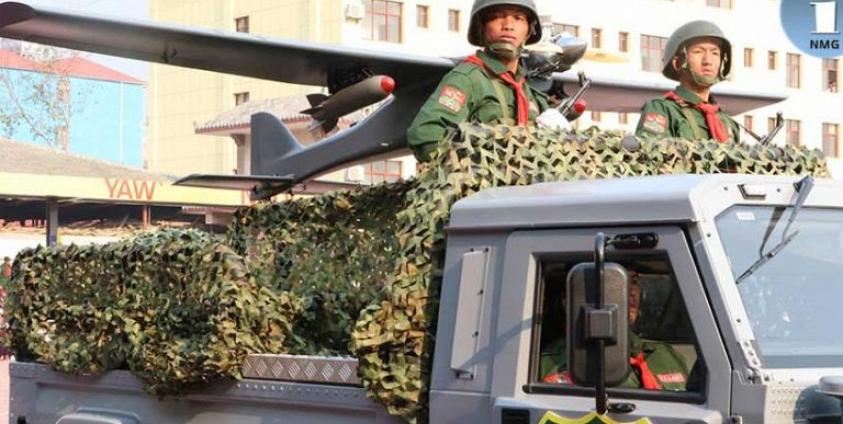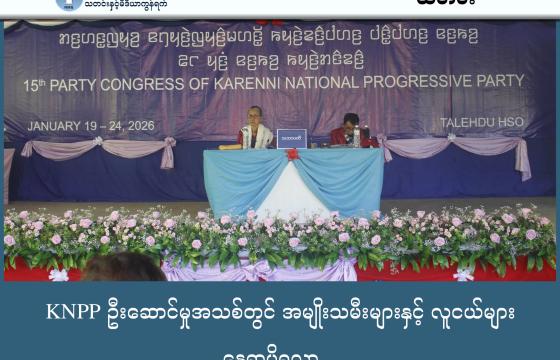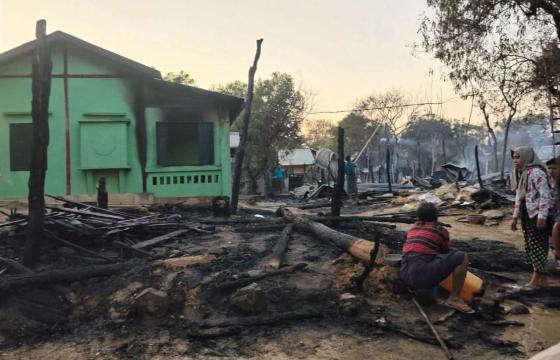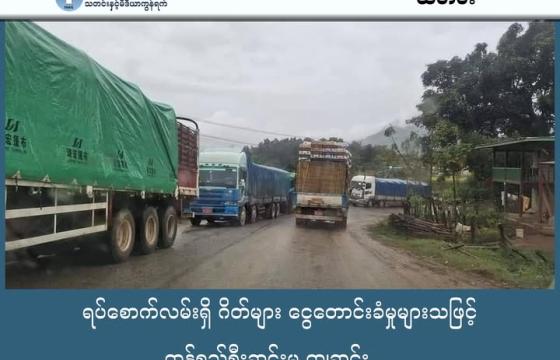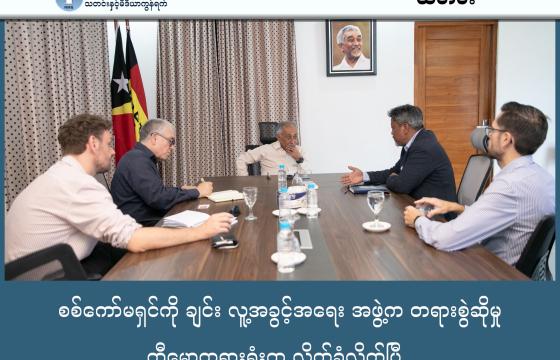The success of the Wa army is sending a strong message to other ethnic armed groups seeking autonomy.
The might of the United Wa State Army (UWSA) was on full display this week as Burma’s largest and most powerful ethnic army celebrated its 30th year of existence with an 8,000-strong military parade that included a company of women and a sniper platoon and hardware ranging from drones to surface-to-air cannons and missiles.
Even more impressive, however, was the group’s evident determination to control its own destiny through political and economic, as well as military, means.
Every aspect of life in the Wa Self-Administered Division—from healthcare and education to energy, agriculture and transportation—is managed directly by the UWSA and its political wing, the United Wa State Party. Notably absent is any role for Burma’s central government.
The lessons on offer here were not lost on the many other ethnic armed organizations (EAOs) in attendance during the week’s celebrations at the UWSA’s Pangkham (Panghsan) headquarters.
“The Wa situation is better than just federalism. It’s more like confederation-level. So other EAOs want to achieve the same thing. On the other hand, the government should give equal rights to all. So if the government gives these rights to the Wa, they should give them to other groups as well,” said Nai Hongsa, vice-chairman of the New Mon State Party.
“People won’t be satisfied if the strongest organization gets more rights than smaller organizations. It will make them want to strengthen their own military power and expand their troops,” he added.
“If this happens, the peace process will reach a deadlock and our country will face many difficulties.”
The alternative, he said, would be for the government to give all ethnic states full powers of self-administration and allow them to develop like the Wa territory—a move that he believes would effectively bring the civil war to an end.
Other ethnic leaders also commended the UWSA for its accomplishments.
“Chin State is the poorest state in Burma. I lived in the Wa region in 1980-82, when it was also very poor. Since then, they have tried to develop their own region, with some support from the government. What I want to say is that the Chin people can do this just as well as any other ethnic people. We can create our own destiny. All ethnic groups are capable of developing their own regions,” Col. Solomon of the Chin National Front told NMG.
The trouble, according to many ethnic leaders, is that consecutive central governments have ignored the Panglong spirit and taken the path of Burmese chauvinism by marginalizing other ethnic groups.
Maung Maung Soe, a political analyst who closely follows ethnic affairs, agreed that this approach has been damaging to the country’s prospects for peace. He says he thinks Burma’s leaders need to take the political aspirations of ethnic minorities more seriously before more of them start to follow the Wa example.
“I am worried about this idea of building strong, fully-equipped armies as a means of achieving political goals. To resolve the country’s conflicts, we need a constitution that guarantees autonomy and equal political rights. If we give this serious thought, we can overcome this crisis,” he said.
He acknowledged, however, that the UWSA’s example already has almost irresistible appeal.
“Well, people here have 24-hour access to electricity as well as full telephone service. The road between the Wa region and Mongla is the best in Shan State, and they were able to construct it themselves,” he noted.
“This is why other EAOs want what the Wa already have. For example, Maj. Tun Mrat Naing, the commander-in-chief of the Arakan Army, is calling for a Wa-style confederation,” he said, speaking to NMG from Pangkham, where he attended the UWSA’s 30th anniversary ceremony on Wednesday.
More than 20,000 people, including government officials and leaders of other EAOs, were present as Pou Youxiang, the UWSA’s commander-in-chief, gave a speech in which he said that a Wa state constitution has already been drawn up.
He added that the Wa region was open to foreign investment and operating under a strong market economy.
The UWAS was formed on April 17, 1989, following the collapse of the Communist Party of Burma. It signed a ceasefire agreement with the then ruling junta the following month.
The UWSA has an estimated 35,000 soldiers, making it Burma’s strongest ethnic army.

